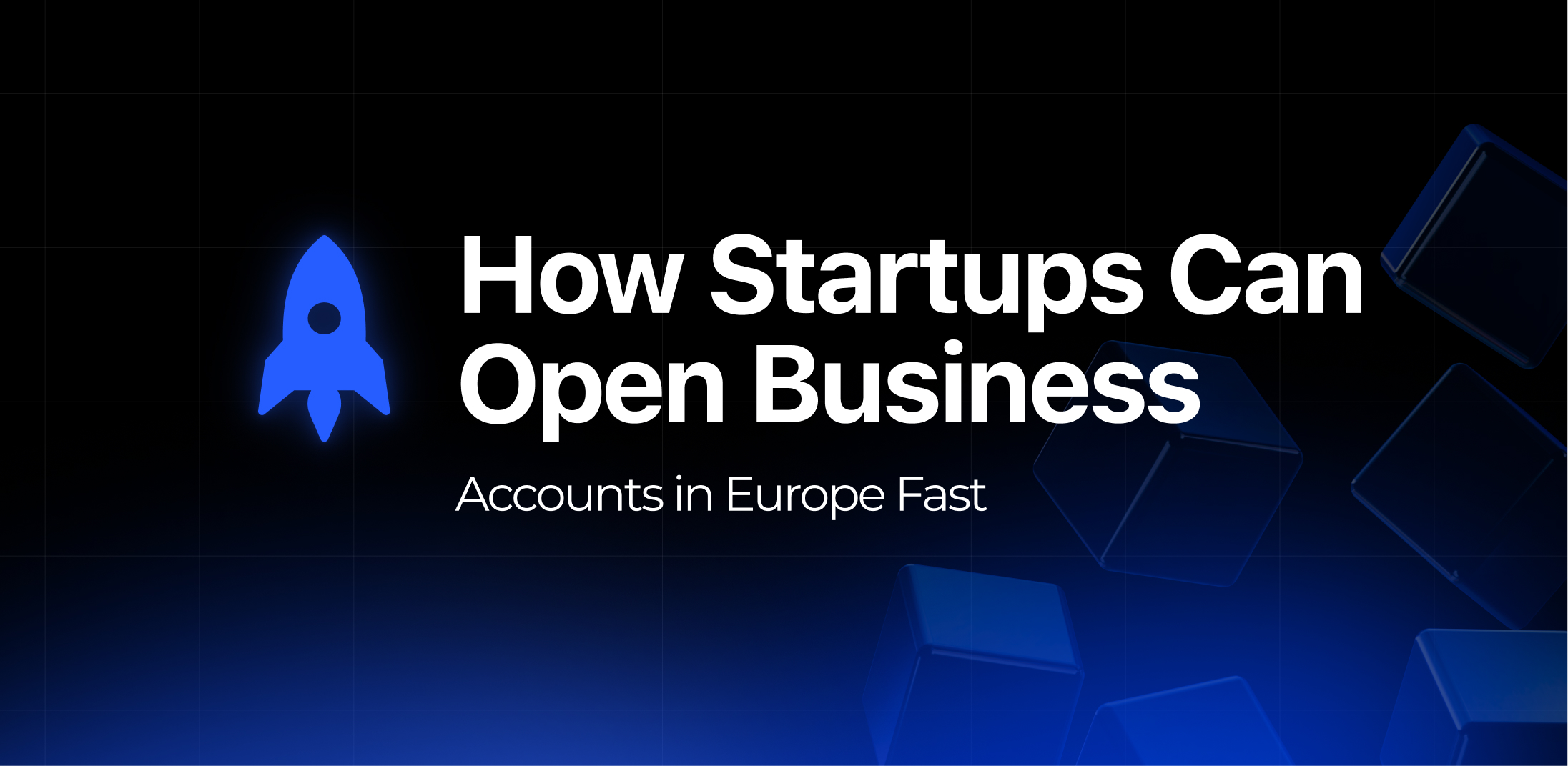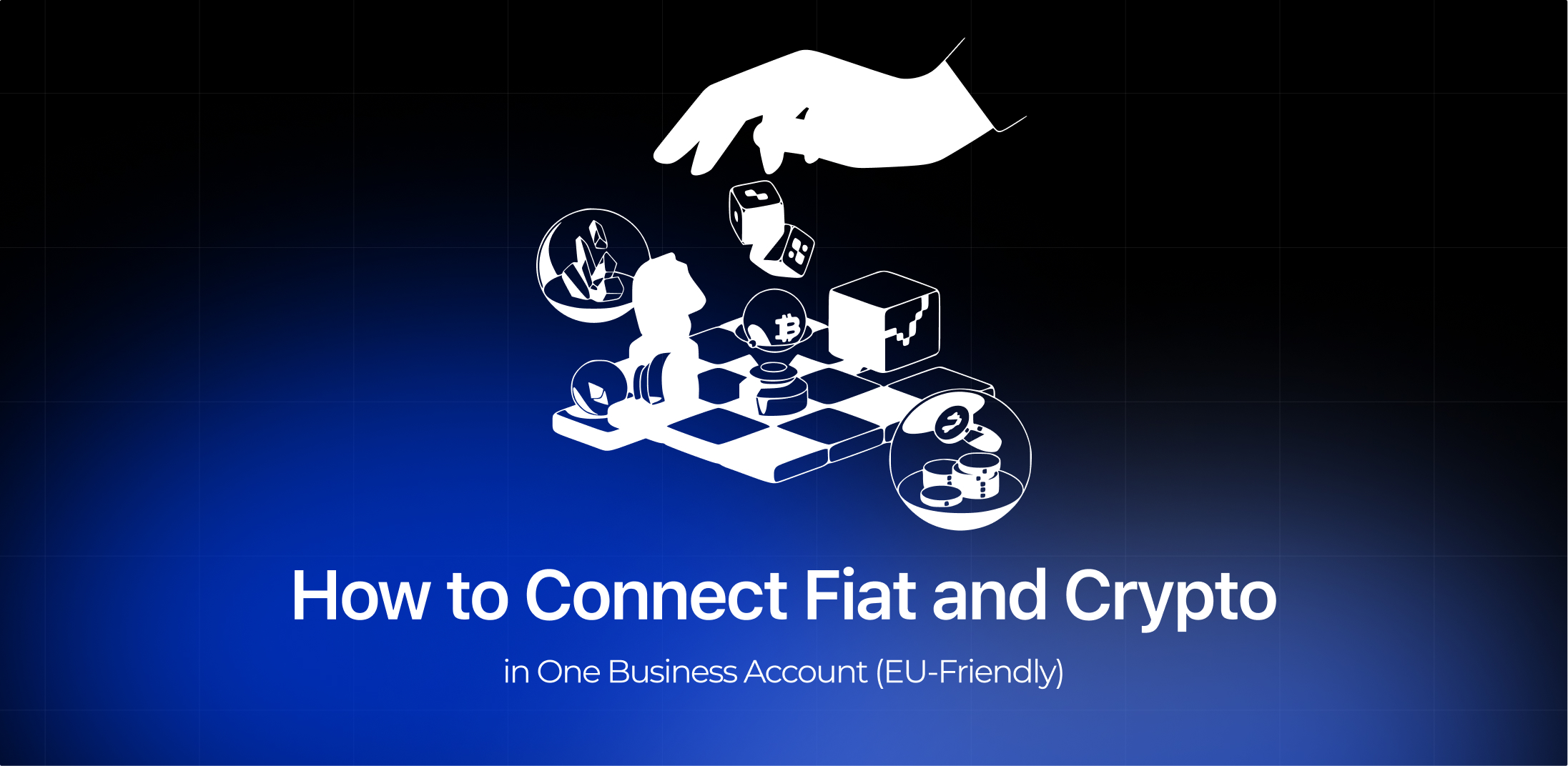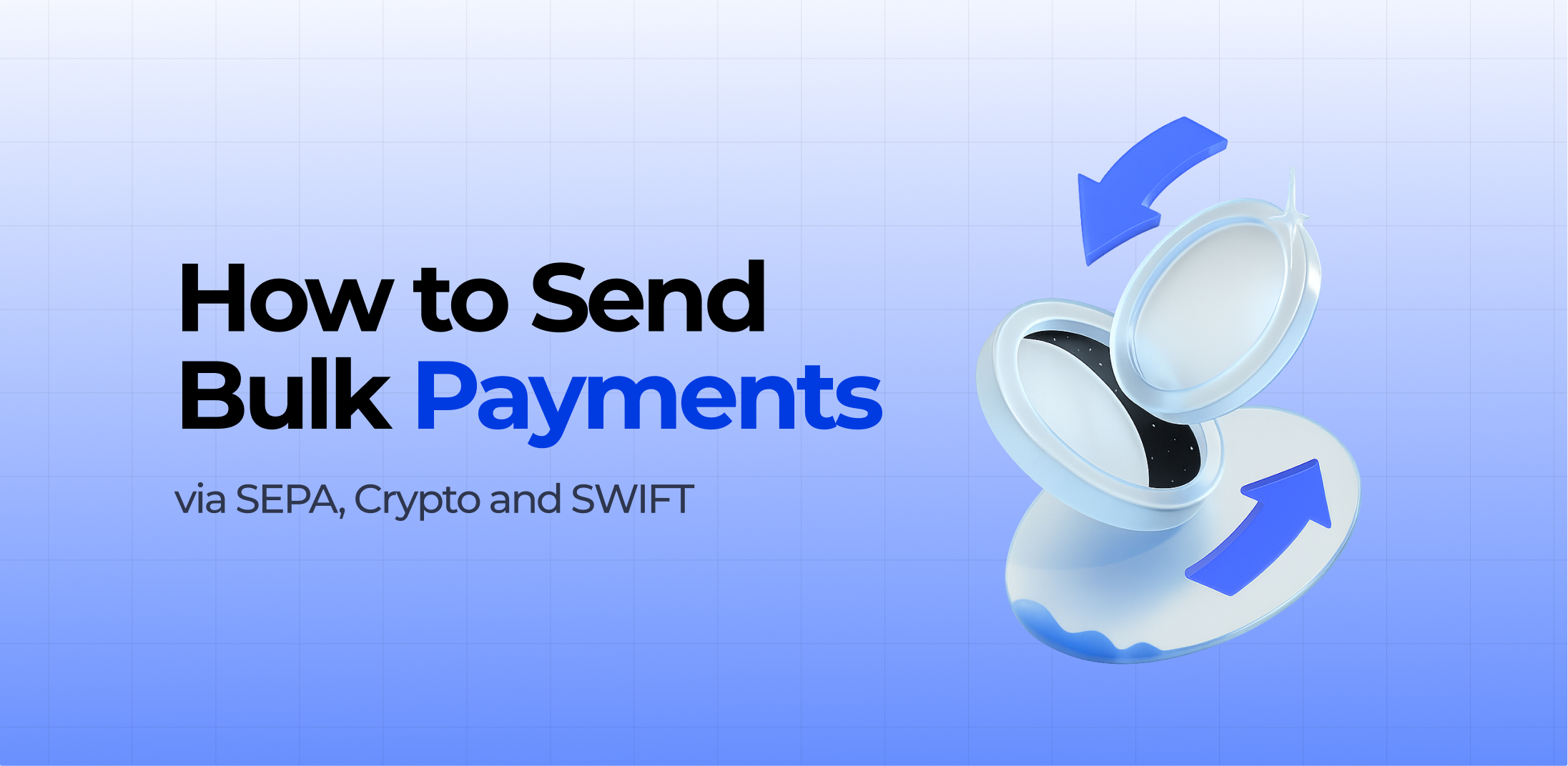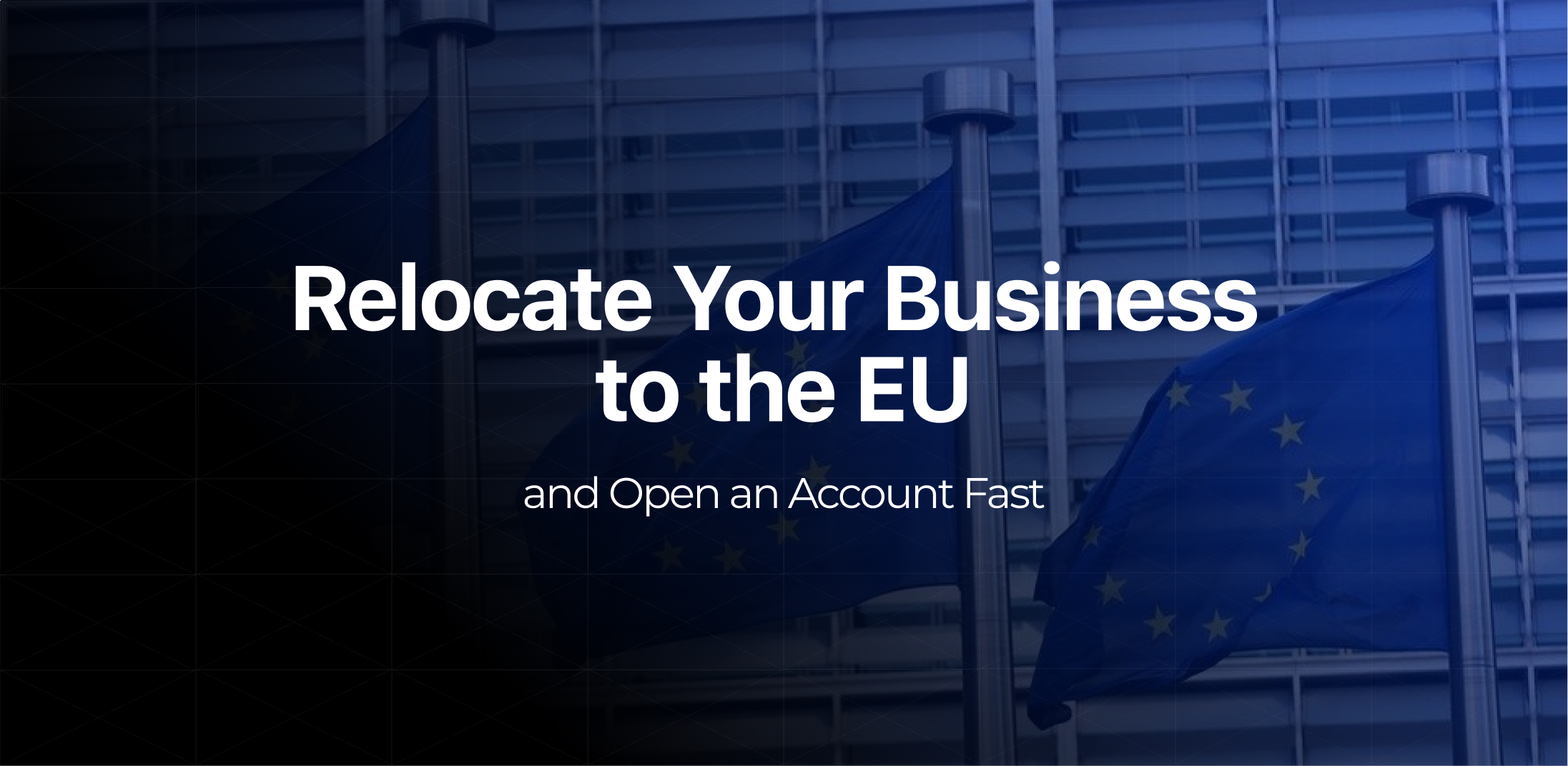Entering the European market represents a major milestone for any startup—but it also brings pressing logistical and regulatory hurdles. One of the most critical early steps is opening a dependable business account. Without local banking access, startups can’t process payments, handle vendor transactions, or comply with EU financial regulations. In today’s competitive landscape, where rapid execution is essential, waiting several weeks to secure traditional banking services can derail momentum.
New businesses often encounter significant roadblocks with traditional European banks. These institutions are typically slow to onboard, require face-to-face meetings, and demand extensive paperwork. Worse, they may reject businesses in innovative or high-risk sectors such as fintech, blockchain, or gaming. This outdated approach makes them a less-than-ideal option for lean, digital-first companies. That’s why more founders are turning to EMIs – Electronic Money Institutions.
EMIs offer a modern alternative with streamlined online applications, fast approvals, and flexible services that align with the pace of global startups. In this guide, we’ll explore how to quickly open a startup business account in Europe, compare traditional banks to EMIs, and outline practical steps to help you choose the right solution. If you’re looking for startup business banking Europe – Business Solutions, this article will point you toward options that prioritize speed, convenience, and scalability – just what you need to accelerate your European expansion.
Why Startups Need Quick Business Banking Access in Europe

For startups looking to break into the European market, gaining quick access to a business bank account isn’t a luxury – it’s a critical step toward operational readiness. Whether you’re establishing a legal entity in the Netherlands, rolling out services in Spain, or building a distributed team across Europe, a startup business account Europe is essential for managing the financial backbone of your business from the start.
Core Financial Operations
Startups handle numerous financial tasks from day one: collecting customer payments, settling invoices, distributing salaries, and handling recurring operational expenses. Without a dedicated European account, these functions become costly, delayed, or non-compliant – especially if relying on personal or overseas accounts.
Legal and Structural Requirements
Many EU countries require businesses to maintain an EU-based account to finalize company incorporation, process tax payments, and manage cross-border VAT obligations. A proper business account also enhances professional credibility, reassuring stakeholders and partners that the company is structured, compliant, and ready for serious transactions.
Speed-to-Market and Fund Access
In the startup world, timing is everything. The ability to launch products, activate payment flows, or access investor capital quickly can define success or failure. Banking delays can jeopardize funding rounds, stall operations, or frustrate early partners. Investors expect fast execution – banking shouldn’t be what holds you back.
That’s why startups should prioritize modern, agile financial solutions that align with their growth goals – services designed to accelerate market entry while meeting both compliance and business needs.
Challenges with Traditional European Banks
Although traditional European banks are known for their reliability and long-standing reputations, they frequently struggle to meet the fast-paced demands of today’s startups. Entrepreneurs focused on scaling quickly and launching efficiently often find themselves facing significant obstacles when attempting to open accounts with legacy banking institutions.
Complicated Onboarding and Excessive Paperwork
Opening a business account through a conventional bank can be an exhausting process. It often involves preparing a stack of documents – such as certified company formation papers, identity verification for all shareholders, and official proof of address. The timeline can stretch over several weeks, creating delays that can stall product launches or revenue collection.
Regulatory Hurdles and Risk Sensitivity
With tightening compliance requirements around AML and KYC, many banks have become overly cautious, particularly when working with international or newly established companies. Startups operating in non-traditional sectors or based outside of the EU often face rejection – not because of red flags, but simply due to the bank’s risk-averse posture.
Outdated Processes and Language Barriers
Many banks still rely on legacy systems that demand in-person appointments, handwritten forms, and offline communication. For founders who operate remotely or outside of Europe, the lack of intuitive online tools and multilingual support can add unnecessary friction to basic account management.
Limited Support for Innovative Industries
Sectors like crypto, iGaming, and fintech are often labeled as “high-risk”, making it difficult for even fully compliant companies to be accepted. This industry bias excludes many legitimate startups from accessing traditional banking services.
As a result, more founders are opting for modern financial solutions. A fast EMI account offers a streamlined, digital-first alternative that avoids the delays and bureaucracy of banks. For many entrepreneurs, a European EMI for founders is the fastest, most practical path to accessing the tools needed to grow and compete in the European market.
The Rise of EMIs: A Faster Alternative for Startups
As startups increasingly seek fast, borderless financial tools, Electronic Money Institutions (EMIs) have emerged as a powerful alternative to traditional banking. Designed with the digital economy in mind, EMIs offer a modern solution that prioritizes speed, ease of use, and streamlined access to essential financial services – exactly what growing companies need when entering the European market.
Defining EMIs: What They Are and What They Do
An Electronic Money Institution is a regulated financial provider licensed to issue electronic money and deliver payment services across the European Economic Area (EEA). While EMIs don’t offer lending services or hold deposits in the traditional sense, they can still provide key features startups rely on: dedicated IBANs, cross-border payment processing, multicurrency account options, and seamless integration with popular payment gateways.
Why Founders Are Embracing EMIs
Startups are drawn to EMIs because of their fast, remote onboarding process. Account approval can take just a few days – without the endless paperwork, in-person meetings, and delays often associated with conventional banks. This is especially valuable for international entrepreneurs who need to hit the ground running without jumping through bureaucratic hoops.
EMIs also deliver a fully digital user experience. From account setup to transaction management, everything is managed online through user-friendly dashboards, APIs, mobile apps, and real-time reporting. For startups that value automation, scalability, and efficiency, EMIs are perfectly aligned with modern operational needs.
Built-In Compliance and Trust
Though faster and more flexible, EMIs are still held to strict regulatory standards. To operate legally within the EU, they must be licensed by official regulators such as the UK’s Financial Conduct Authority (FCA), Germany’s BaFin, or Lithuania’s Central Bank. These licenses require EMIs to implement strong AML policies, data protection, and fund safeguarding practices.
Under EU passporting rules, an EMI authorized in one EU state can serve businesses across the entire Union. This allows startups to scale with confidence, knowing their financial partner is compliant and secure – without sacrificing speed or agility.
How to Choose the Right EMI for Your Startup
Not every Electronic Money Institution is the perfect fit for your startup. While many EMIs promise fast setup and digital convenience, choosing the right one depends on your company’s specific operational needs, expansion goals, and industry requirements. The right EMI can streamline your financial workflows and help accelerate your growth across Europe.
What to Look for in an EMI
1. Regulatory Location
Since EMIs are licensed and overseen by national regulators, the country in which your provider is authorized matters. Jurisdictions like Lithuania, the UK, and Ireland are particularly startup-friendly, offering faster regulatory processing and strong cross-border capabilities through EU passporting.
2. Speed and Ease of Setup
Startups thrive on momentum. Look for an EMI that offers a straightforward, remote application process with clear onboarding timelines. The fewer the barriers, the quicker your operations can go live.
3. Integration with Key Platforms
A good EMI should easily connect to platforms like Stripe, PayPal, e-commerce tools, and accounting software. Whether through APIs or direct integrations, this connectivity enables automation and efficiency in managing payments and finances.
4. Currency Support and International Reach
Startups dealing with customers or partners abroad benefit from EMIs that offer multi-currency accounts and competitive foreign exchange rates. This simplifies global transactions and helps manage revenue from different regions more effectively.
5. Transparent Fees and Scalable Plans
Look for EMIs that offer flexible pricing structures without hidden fees. Providers that cater specifically to early-stage companies often offer lower entry costs and scalable services as your needs evolve.
Real-World Example: A SaaS Startup’s EMI Advantage
A SaaS startup based in Berlin chose a Lithuania-licensed EMI and had a full operational account – including IBAN, multicurrency support, and PayPal connectivity – activated within 48 hours. This enabled them to accept client payments, onboard investors, and operate across the EU significantly faster than a traditional banking route would have allowed.
Step-by-Step Guide to Opening a Fast EMI Account

Opening a fast EMI account can significantly accelerate a startup’s entry into the European market. Unlike traditional banks, many Electronic Money Institutions (EMIs) provide a simplified, fully digital onboarding process that enables businesses to manage their finances within days rather than waiting weeks. Below is a straightforward step-by-step guide to help you open an EMI account quickly and smoothly.
Step 1: Prepare Necessary Documentation
Before starting your application, ensure you have all essential documents ready. These usually include:
- Company registration papers such as your incorporation certificate or business license.
- Personal identification like a valid passport or national ID for all directors and beneficial owners.
- Proof of address in the form of recent utility bills or bank statements.
- Business description outlining your startup’s activities, anticipated transaction volumes, and sources of funding.
Having these documents at hand will help expedite the verification process and reduce waiting times.
Step 2: Select an EMI Aligned with Your Business Type
EMIs often cater to specific industries or markets. Some specialize in fintech firms, while others focus on e-commerce or software companies. Choosing an EMI that understands your sector can streamline compliance checks and increase the likelihood of fast approval. Also, consider features like multicurrency capabilities, compatibility with payment gateways, and pricing structures to find a provider that fits your operational requirements.
Step 3: Complete the Online Application
The majority of EMIs facilitate a fully online application process. You’ll complete a digital form, upload your documentation, and provide company details. This digital-first approach means you can apply from anywhere without the need for branch visits.
Step 4: Undergo Compliance Checks (KYC/KYB)
Once submitted, your application enters the compliance review stage, which includes Know Your Customer (KYC) and Know Your Business (KYB) procedures. These steps verify your identity and assess your company’s legitimacy and risk profile. Many EMIs use automated systems to speed up this process, often completing it within a few days.
Step 5: Account Activation and IBAN Assignment
After successfully passing compliance, your EMI account will be activated. You will receive your own IBAN (International Bank Account Number), enabling seamless European payments. At this point, you’ll gain access to the EMI’s digital platform or app to easily manage your business finances.
Comparing Top European EMI Options for Startups
Selecting the ideal Electronic Money Institution (EMI) is crucial for startups that need fast, adaptable, and affordable banking options within Europe. The table below compares five prominent EMI providers popular among startups, outlining their main characteristics, onboarding timelines, fee structures, and best-fit use cases.
| EMI Provider | Licensing Country | Time to Onboard | Multicurrency Support | Fees | Ideal For | Startup Friendliness |
| PaySaxas | Lithuania | 2–3 days | Yes (20+ currencies) | Transparent, low monthly fees with pay-as-you-go transaction costs | Tech startups, SaaS, fintech | Fast onboarding, API integrations, startup-focused pricing |
| Wise Business | UK | 1–3 days | Yes (50+ currencies) | Low fees and pay-per-use foreign exchange rates | International e-commerce, freelancers | Easy-to-use platform, simple setup, no minimum balance |
| Revolut Business | UK | 1–5 days | Yes (30+ currencies) | Monthly plans starting at €7, with additional FX fees | Small to mid-size startups, SaaS | Mobile-first, great app, extensive integrations |
| Bankera | Lithuania | 3–7 days | Yes (multiple currencies) | Competitive pricing with optional premium plans | Crypto-related startups, fintech | Supportive of high-risk industries, custom solutions |
| N26 Business | Germany | 1–4 days | Limited (EUR-focused) | No monthly fee for freelancers; paid plans available for other users | Freelancers, solo founders | Simple user experience, limited multicurrency support |
PaySaxas is quickly becoming a preferred partner for startups thanks to its ultra-fast onboarding process, often completed within just 48 hours, and extensive multicurrency support. Wise Business stands out for its user-friendly interface and broad currency range. Revolut Business delivers a polished, mobile-first banking experience with a variety of account tiers.
It’s well-suited for startups needing seamless integrations and a modern app interface. Bankera differentiates itself by embracing industries that often face difficulties with traditional banks – particularly crypto-related startups. N26 Business offers a minimalistic and intuitive banking experience, making it an excellent choice for freelancers and solo founders operating primarily in euros.
Managing Business Payments Across Europe with Your EMI Account

Once your startup is active with an EMI account, you unlock a suite of advanced features designed to streamline financial operations across European markets. More than just a quick onboarding solution, Electronic Money Institutions (EMIs) offer robust capabilities that match the pace and complexity of modern startup needs.
Cross-Border Payment Tools: SEPA, SWIFT & FX
A European EMI account enables seamless participation in the SEPA (Single Euro Payments Area) network, making intra-EU euro transfers fast and cost-effective. For global operations, SWIFT transfers are typically available, enabling you to send and receive payments outside of Europe. Moreover, foreign exchange (FX) services through EMIs often provide better conversion rates than traditional banks – an important advantage for startups managing international transactions and multiple currencies.
Automation of Key Financial Processes
One of the biggest strengths of EMIs is automation. Many providers offer tools that let startups automate payroll, handling salaries across different countries with ease. You can also set up recurring payments for suppliers and generate automated invoices, reducing the risk of human error and improving operational efficiency. This automation is essential for lean teams focused on scaling rapidly.
API Access and Integration with Digital Tools
Built with digital businesses in mind, EMIs often support direct integration with payment gateways and fintech platforms. Whether you use Stripe, PayPal, Shopify, or cloud accounting software like Xero or QuickBooks, your EMI account can sync in real time – streamlining reporting, reconciliation, and financial oversight.
Common Mistakes to Avoid When Opening a Business Account in Europe
Opening a business account in Europe can be straightforward – if startups avoid the key missteps that often lead to delays or rejections. Whether you’re considering a traditional bank or a modern EMI, taking a strategic approach from the start can help you avoid regulatory setbacks and operational disruptions.
1. Submitting Incomplete or Mismatched Documentation
A common stumbling block is providing incomplete or incorrect paperwork. Most EMIs and banks will require a full set of documentation, including incorporation certificates, proof of address for company stakeholders, ID verification, and a clear outline of your business activity. Any inconsistencies or missing documents can lead to prolonged onboarding or outright denial.
2. Selecting an Incompatible Financial Institution
Startups often apply to institutions that aren’t suited to their needs. Traditional banks may offer prestige but tend to move slowly and have stricter risk profiles – especially for tech, crypto, or international ventures. EMIs, by contrast, are agile and digital but might lack services like credit facilities. It’s crucial to align your choice with your business model and goals.
3. Overlooking Industry Regulations
Industries like crypto, online gambling, and international e-commerce are heavily regulated. Applying to a financial provider that doesn’t support your sector—or not addressing potential red flags in your application—can result in rejections. It’s best to work with institutions familiar with your industry’s compliance requirements.
4. Failing to Confirm EMI Coverage
Not all EMIs support every incorporation jurisdiction. Before applying, verify that the EMI accepts businesses from your country and can issue a suitable IBAN. Otherwise, your application could be rejected even if all other criteria are met. By avoiding these pitfalls, your startup can accelerate the account opening process and gain the financial foundation needed for smooth, scalable operations in Europe.
Future-Proofing: Scaling Your Financial Infrastructure
As your startup advances, so will the complexity of your financial operations. What works in the early stages might not suffice as you expand across borders, onboard global clients, or raise capital. That’s why building a future-ready financial infrastructure from day one is critical to long-term scalability and success.
Choose an EMI That Scales with Your Startup
Opt for an EMI that supports long-term growth by offering multicurrency functionality, local IBANs, and, if relevant to your sector, crypto transaction support. These features allow your business to handle diverse customer bases, streamline international payments, and expand into new markets without switching providers. Some EMIs even tailor their services to the needs of fast-growing, tech-driven startups, making them ideal strategic partners.
Plan Ahead for Investment and Compliance
If raising venture capital is part of your roadmap, your financial setup must be investor-ready. EMIs that provide clear fund segregation, real-time dashboards, and integration with accounting tools will help ensure that audits, due diligence, and financial reporting are seamless. A robust EMI account structure signals operational maturity – something VCs value when evaluating growth-stage startups.
Consider Future Expansion or HQ Moves
Planning to relocate your headquarters or expand into additional EU jurisdictions? Not all EMIs are created equal when it comes to cross-border capabilities. Prioritize providers with passporting across the EU, multilingual support, and flexible onboarding for future entities. This foresight reduces friction and accelerates entry into new markets.
Ultimately, future-proofing means choosing an EMI that can scale alongside your ambitions – one that adapts as your needs grow, ensures compliance, and supports a smooth path to global expansion.
Conclusion: The Smart Path Forward for Startup Banking in Europe
For startups aiming to establish or grow their presence in the European market, selecting the right financial partner goes beyond routine operations – it’s a critical strategic choice. As highlighted, Electronic Money Institutions (EMIs) provide a quicker, more adaptable, and scalable solution compared to conventional banks. Offering rapid onboarding, multicurrency account options, seamless integration with fintech tools, and compliance with regulations, EMIs are designed to meet the demands of today’s fast-paced, high-growth startups.
However, not every EMI offers the same advantages. Choosing the ideal provider involves looking beyond speed to assess factors like regulatory licensing, integration options, fee transparency, and suitability for your specific industry. Whether you’re building a fintech disruptor or a global e-commerce platform, your EMI should align with both your immediate needs and future ambitions.
It’s time to leave behind slow, outdated banking practices. Adopt a smarter, more efficient approach to startup business banking Europe – Business Solutions. With the right EMI by your side, you’ll establish a financial foundation that grows with you – fast, secure, and built for what lies ahead.








